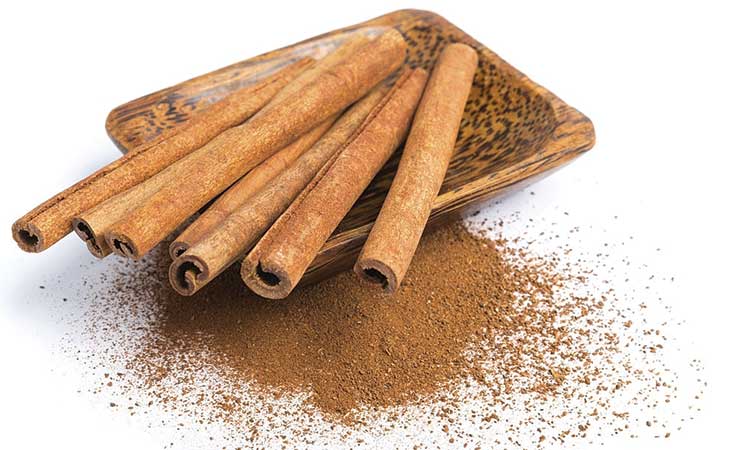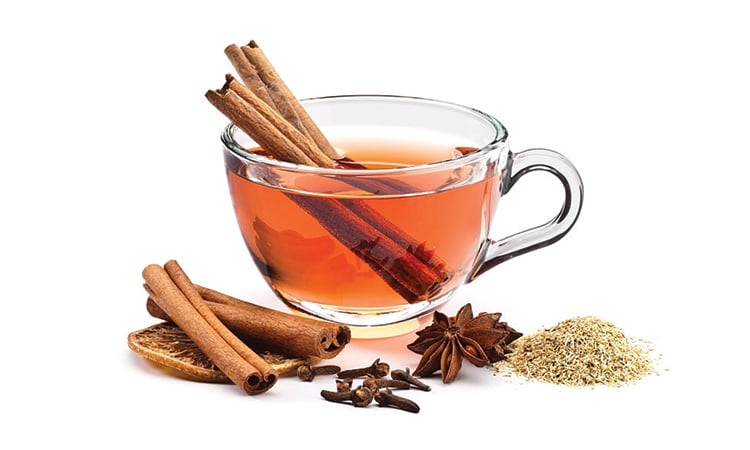One of the most admired spices worldwide, cinnamon is known for its aroma and sweet, warm taste. However, lactating mothers are asked to avoid cinnamon while breastfeeding. Are you wondering why cinnamon is not recommended when breastfeeding? How can it harm the baby? This blog helps to shed some light on this topic.
Cinnamon is counted as one of the top seven galactagogues. This means cinnamon helps to increase breast milk production. This spice also helps in delaying periods after delivery. Even then, cinnamon is not recommended during breastfeeding.
Some foods during breast feeding could brings health benefits beyond their nutritional values. On the other hand, consumption of some foods during lactating phase can lead to adverse outcomes in the baby. Cinnamon falls under the second category.
Why Certain Herb And Spice Consumption Is Not Safe During Pregnancy?
The quality of food taken during lactation is imperative for maternal health and milk quality. However, sometimes even herbs or spices that have medicinal value might have an adverse effect during lactation.
This is because many a times, the components of these herbs and spices may get into the breast milk. The effect on the baby will not be the same as the effect on adults. The internal organs of a breastfeeding baby are not fully developed.
Therefore, a baby’s body may not be able to utilize, absorb, or eliminate these components as they should be. This can bring about many adverse effects. Sometimes, even diet modifications that seem simple can bring about metabolic, endocrine disturbances in the mother.
The components that can potentially cause endocrine disturbance can alter the composition of the milk and get into the baby’s body. These components can potentially bring on short or long term metabolic issues in the baby.
Related Reading: 9 Biggest Challenges Of Breastfeeding No One Prepares You For
Types Of Cinnamon And Risk Of Coumarin

Before getting into why should you avoid cinnamon while breastfeeding, it’s important to understand about types of cinnamons. Two types of cinnamons commonly available in the market are Cassia cinnamon and Ceylon cinnamon. Among these, cassia is not safe during breastfeeding due to several factors.
What is Coumarin?
Coumarin is one of the components of this spice that gives cinnamon its flavour. Coumarin, if ingested too much, is not good for health.
The level of coumarin is found to be low in Ceylon cinnamon. On the other hand, Cassia cinnamon contains higher levels of coumarin. Therefore, consuming large quantities of Cassia cinnamon over prolonged periods of time can create many serious health issues like liver damage. It also increases the risk of cancer.
Why Should I Avoid Cinnamon While Breastfeeding?
Cinnamon while breastfeeding is generally considered safe as long as you are using it as one of the many ingredients while making make curries and rice. However, using it as medicine or making use of its galactagogues property is not recommended.
Cinnamon has a tendency to drop the blood sugar level. Therefore if used during breastfeeding, especially along with other galactagogues like fenugreek seeds it can result in a sudden drop in blood sugar level. If it gets into the baby’s body, you can’t rule out the possibilities of the same effect, which can be highly dangerous.
Moreover, like many other spices and herbs, Cinnamon is not assessed or regulated by the FDA. Therefore, its effects, risks and benefits are still not thoroughly evaluated. Besides, we should not overlook the ill effects of its vital ingredient- coumarin.
Related Reading: Foods To Avoid During Breastfeeding
Does Cinnamon Upset A Breastfed Baby?

Many breastfed babies tend to react to the food ingested by their mother. Actually, it is not the whole food that is problematic, but some chemical ingredients of that particular food that cause the issues.
When breastfeeding mothers ingest cinnamon, it is found to affect the flavour of their breast milk. This confirms many components from cinnamon gets into the breast milk. It can upset the breast fed baby in many ways.
Babies can develop an allergic reaction to the presence of cinnamon in breast milk. The symptoms of sensitivity to cinnamon appear soon after a mother breastfeeds the baby after consuming cinnamon in large or concentrated amounts. The babies could:
- Refuse to suck the breast milk as they don’t like the taste or flavour of Cinnamon tinged breast milk
- Babies may become cranky, most probably due to indigestion, or due to being gassy or stomach pain associated with indigestion
- Some babies may develop rashes or hives. Remember, different babies react differently to the same substance
- In extreme cases, the baby may experience diarrhoea, vomiting, etc.
- If the baby is premature or has existing health issues, many medicinal properties of this spice like blood thinning property, anti-diabetic property, etc. might adversely affect the baby.
However, if a mother has this spice in regular food, it will not affect the breastfed baby. Also, many babies like to experiment with different flavours of breast milk.
Related Reading: 15 Foods That Make Breast Milk Taste Bad
Many babies like cinnamon tinged breast milk. Good news is that these babies tend to be less picky eaters when the big world of solid foods is opened before them.
Taking cinnamon supplements during breastfeeding
Higher doses of cinnamon, as in cinnamon supplements are not safe during breastfeeding. When the consumption of cinnamon during breastfeeding crosses the moderation level, it may harm the mother’s health as well.
Mothers may also develop allergic reactions to cinnamon supplements or any concentrated form of cinnamon. A compound responsible for triggering these allergic reactions in cinnamon is called cinnamaldehyde.
This compound is abundantly found in both types of Cinnamon. The allergic reactions comprise mouth sores, gum swelling, swelling up of tongue, burning sensation in the mouth, etc.
Also, cinnamons’ components that bring down the blood sugar level, bring about thinning of the blood, etc., will be high in the concentrated form of cinnamon. Therefore taking a cinnamon supplement during breastfeeding without consulting a medical practitioner is not wise.
Can I drink cinnamon tea while breastfeeding

Cinnamon tea is highly beneficial for breastfeeding mothers in many manners. It helps to lose those extra kilos she gained during her pregnancy journey, especially around her waist. Cinnamon tea helps to boost immunity and metabolism. It aids in digestion as well.
Related Reading: What Teas Are Safe To Drink While Pregnant?
A breastfeeding mother can have one small cup of lightly brewed cinnamon tea (with a small cinnamon stick rather than powder) every day if she is a cinnamon tea fan. However, abstain from drinking cinnamon tea more than that or making it as a regular practice during breastfeeding.
Remember
Cinnamon has many properties that are beneficial for breastfeeding mothers. However, if the risks posed by food on the baby’s health outweigh its benefits for the mother, it is mandatory to abstain from such food items. Avoid cinnamon during breastfeeding completely if the baby shows any sign of discomfort.
Likewise, cinnamon supplements’ safety with respect to nursing mothers is not fully studied or assessed. Therefore, breastfeeding mothers should talk to their doctors before taking it.
However, if the breastfeeding mother enjoys eating Cinnamon (as in the amount found in various dishes), she can continue eating it. That is, as long as the baby does not shows a negative reaction.
At the same time, abstain from eating it in raw or powdered form. Eating Cinnamon without mixing it with a beverage or food can cause lung infections like pneumonia. This is because lungs more often fail to break down the fibres in Cinnamon.


